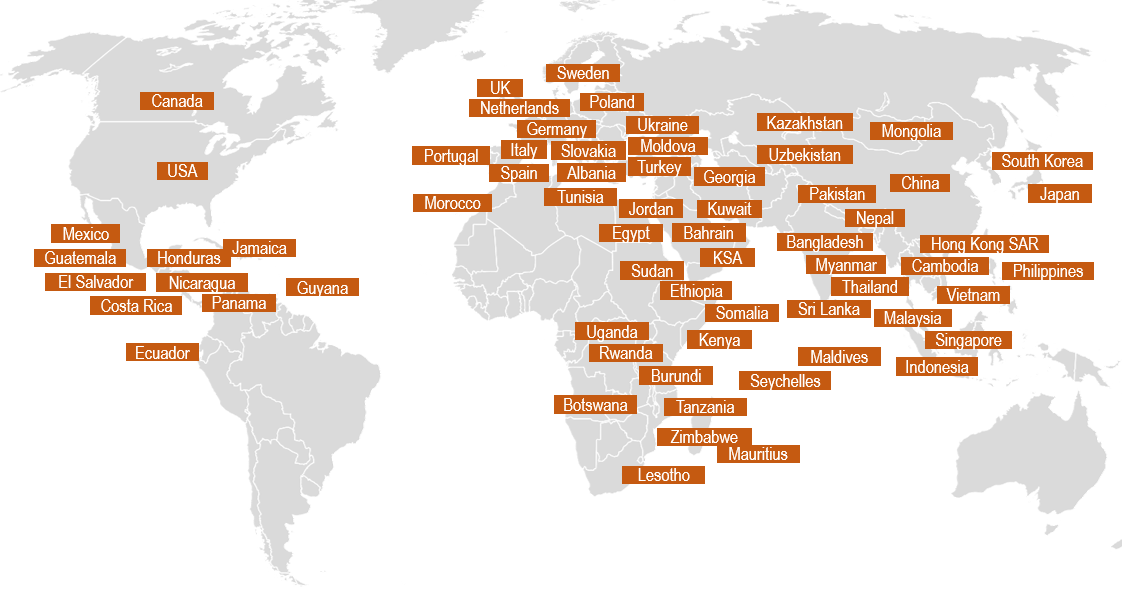Taking stock of 5 years of global action

It has now been just over 5 years since IRIS got started through generous contributions and partnership with the Swiss government (the Swiss Agency for Development and Cooperation) as well as the Swedish, Australian, and Canadian governments. Since these initial contributions, IRIS has grown to become a truly global multistakeholder initiative, leading the way in promoting ethical recruitment and protection of migrant workers.
The goal of IRIS is to make recruitment fair for everyone involved: migrant workers, employers, recruiters and countries of origin and destination. The Initiative has come a long way in a short period of time, but there is still a lot more to be done to make ethical recruitment the norm for the millions of migrant workers around the world.
Since its launch in 2016, IRIS has hit a series of important milestones:
- IRIS pilot testing began in 2017 with the first government-to-government project between the Philippines and Canada.
-
In 2018, the IRIS Standard – which sets out the principles and benchmarks that define ethical recruitment – was established. This was followed by the launch of IRIS Certification later that year.
-
In 2019, the Labour Recruiter Capacity Building Programme became operational, while the first employers were trained on IRIS to stimulate demand for the services of ethical recruiters.
- IRIS is now well-established in Asia, Africa, Europe, and the Americas, and has trained more than 750 recruiters worldwide, creating a pool of agencies committed to ethical recruitment and working towards compliance to the IRIS Standard.
- A growing number of champion recruiters are expected to be ready for IRIS Certification later this year.
To further stimulate the enabling environment for ethical recruitment, IRIS most recently supported the launch of a new Global Policy Network (GPN) on recruitment in December 2020. This initiative is driven by IOM Member States with the goal of strengthening recruitment regulation and migrant worker protection through dialogue, cross-fertilization and sharing of good practices. This was complemented by the creation of the IRIS: Migrant Voice network, which places migrant workers at the center of IRIS engagement and is essential not only to enhance migrant worker protection but to create an enabling environment for sustainable ethical recruitment.
Stakeholder engagement and partnerships are the foundation upon which IRIS is built. From the outset, the Initiative has prioritized close collaboration with a wide range of actors, including governments, civil society, the private sector, and recruiters themselves. These relationships serve not only to bring new voices, ideas, and stakeholders to tackle unethical recruitment practices, but to amplify, scale, and sustain collective solutions. Mirroring the Global Compact for Safe, Orderly and Regular Migration – which refers to IRIS under Objective 6 – a whole of society approach is vital if we are to achieve the rights-based and developmental goals to which the global community has committed.
Looking to the future, where will IRIS be in five years from now? Given the scale of the challenge ahead of us, recruitment industry transformation aligned with international standards will be impossible without the dedication and action of leading stakeholders. Fortunately, we are now seeing a groundswell of action around the world, bringing new stakeholders, donors, industries, and regions to tackle the problem. These are encouraging developments but more needs to be done.
Please join us as IRIS looks to the next phase of its commitment to ethical recruitment and the protection of migrant workers around the world.